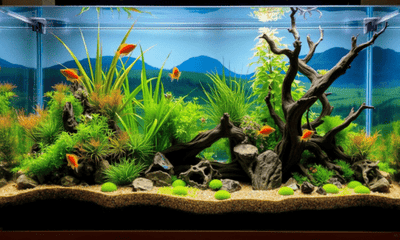Sustainability is a crucial issue in today’s world, and it affects every part of our lives, including the care of our pets. As responsible pet owners, we can take steps to minimize our pets' environmental impact while still ensuring they live happy, healthy lives. From selecting eco-friendly products to adopting sustainable habits, here’s how you can incorporate sustainability into your pet care routine.
Eco-Friendly Products for Your Pet
One of the easiest and most effective ways to make pet care more sustainable is by choosing eco-friendly products. Many pet products on the market are made with plastic, synthetic materials, or harmful chemicals that can have a lasting impact on the environment.
One simple change pet owners can make is to switch to biodegradable poop bags such as Bio Gone Poo Bags. Traditional plastic bags take hundreds of years to decompose, but biodegradable bags break down much faster, reducing the amount of plastic waste that ends up in landfills.
For pets with sensitive skin, consider switching to natural grooming products made with organic, plant-based ingredients. Petway offers a range of natural grooming products that are made with organic, plant-based ingredients, making them gentle on your pet’s skin while being effective in keeping them clean and fresh. These products are free of harsh chemicals like parabens, sulfates, and artificial fragrances, which can irritate your pet's skin and harm the environment.
Sustainable Pet Food
Food is one of the most significant parts of pet care, and just like with human food, how and where we source it matters. By choosing sustainably sourced food, you’re contributing to better farming practices, animal welfare, and reducing the carbon footprint. Look for pet food brands that prioritize sustainability in their ingredient sourcing and production processes.
Ziwi Peak is crafted using ethically sourced ingredients from New Zealand, with a focus on free-range, grass-fed, and wild-caught animals. Ziwi Peak's air-dried and canned foods ensure high nutritional value while maintaining eco-friendly practices, including sustainable farming methods and reduced carbon footprints. Similarly, Vets All Natural offers biologically appropriate pet food, formulated with high-quality, locally sourced ingredients that mirror the natural diets of animals. By focusing on whole, natural ingredients and avoiding artificial additives, Vets All Natural promotes both pet health and environmental well-being, helping to create a more sustainable future for both pets and the planet.
Some pets, especially those with allergies or sensitivities, thrive on grain-free or plant-based diets. These diets can reduce the environmental impact of animal agriculture, which is one of the largest contributors to greenhouse gas emissions. Plant-based diets also require fewer natural resources like water and land. There are a range of super premium grain-free foods available for dogs and cats, including Black Hawk, Ivory Coat and Meals for Mutts.
Buy in Bulk
Opting for bulk food options is another great way to reduce waste. Many pet food brands offer large bags that help minimize packaging waste. If you’re able to store it properly, buying in bulk is a cost-effective and environmentally friendly choice.
Reduce, Reuse, and Recycle
Packaging Waste
One of the biggest contributors to pet care-related waste is packaging. Pet food and treats often come in single-use plastic bags or containers, but more brands are now offering recyclable packaging. If recycling isn’t an option, consider reusing containers for storage or repurposing them creatively.
Upcycle Your Pet’s Old Toys
Before throwing away old pet toys, consider upcycling them. For example, an old tennis ball can be turned into a fun DIY toy or an old blanket can be reused to create a comfy bed for your pet. This reduces waste and gives new life to old items.
Composting Pet Waste
While you may not be able to compost pet food waste, dog and cat waste (in biodegradable bags) can sometimes be composted in specialized systems. There are pet waste composting solutions that allow you to compost this waste without risking the spread of harmful pathogens.
Adopt, Don’t Shop
Adopting pets instead of buying from breeders is another way to contribute to sustainability. By adopting, you are reducing the demand for over breeding and supporting shelters that are working to find homes for animals in need. When you adopt a pet from a shelter, you’re not only giving a home to an animal in need, but you're also helping to reduce the overall pet population. Shelters are often overwhelmed, and adopting a pet from a rescue organization helps reduce the need for breeding and the impact of irresponsible pet ownership.
Reduce water usage
Water conservation is an important aspect of sustainable pet care. A great way to reduce waste while keeping your pet hydrated is by using water-saving pet products like the PetSafe Drinkwell Pet Fountain. This product is designed to provide a continuous stream of fresh water, encouraging your pet to drink more and preventing stagnant water waste. It helps ensure your pet stays hydrated while conserving water, making it an eco-friendly and practical choice for pet owners committed to sustainability.
Support Sustainable Brands and Local Businesses
When shopping for pet products, consider supporting small, local businesses that are committed to sustainability. Many smaller brands prioritize ethical production practices, organic ingredients, and packaging that minimizes environmental impact.
At Woonona Petfoods we are a local, family-owned business that proudly supports our community. We employ local people and are committed to sustainability in everything we do. By choosing us, you're supporting a business that prioritizes both the health of your pets and the planet, while also contributing to the local economy and reducing the carbon footprint of mass-produced goods.
Why Sustainable Pet Care Matters
The impact of sustainable pet care is far-reaching. Not only does it help reduce your pet’s environmental footprint, but it also promotes better health for your pet and the planet. By choosing products that prioritize quality, sustainability, and ethical sourcing, you're ensuring that your pet’s needs are met without compromising the well-being of future generations.
As pet owners, we are responsible for not only our pets’ health and happiness but also for ensuring that we are minimizing our impact on the planet. By adopting small, sustainable changes in your pet care routine, you’re contributing to a larger movement that can help create a healthier, greener world for both humans and animals.
Making pet care sustainable doesn’t have to be difficult or expensive. By making conscious choices when it comes to the products you buy, the food you feed your pets, and the practices you adopt, you can significantly reduce your pet’s environmental impact. It’s all about small steps that add up over time, creating a ripple effect for the health of your pet and the planet. So start today by exploring eco-friendly pet care options and join the growing movement toward a more sustainable and responsible way to care for our furry, feathery, and scaly friends.






